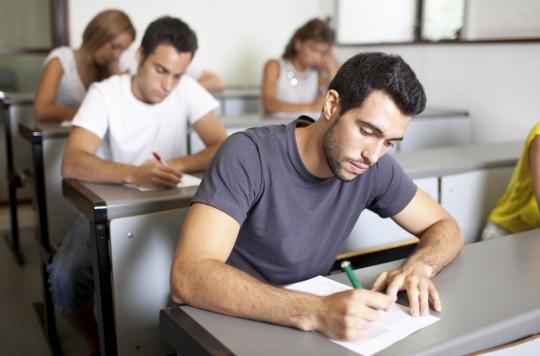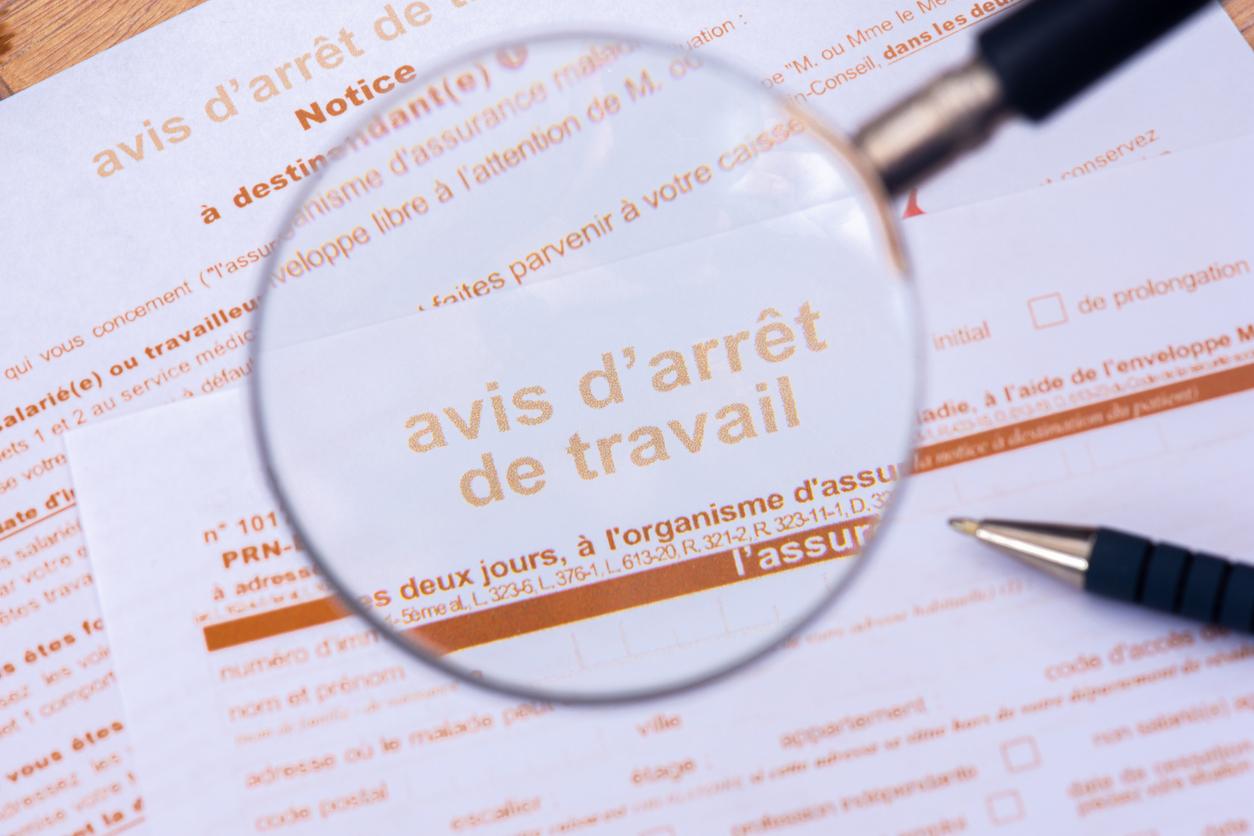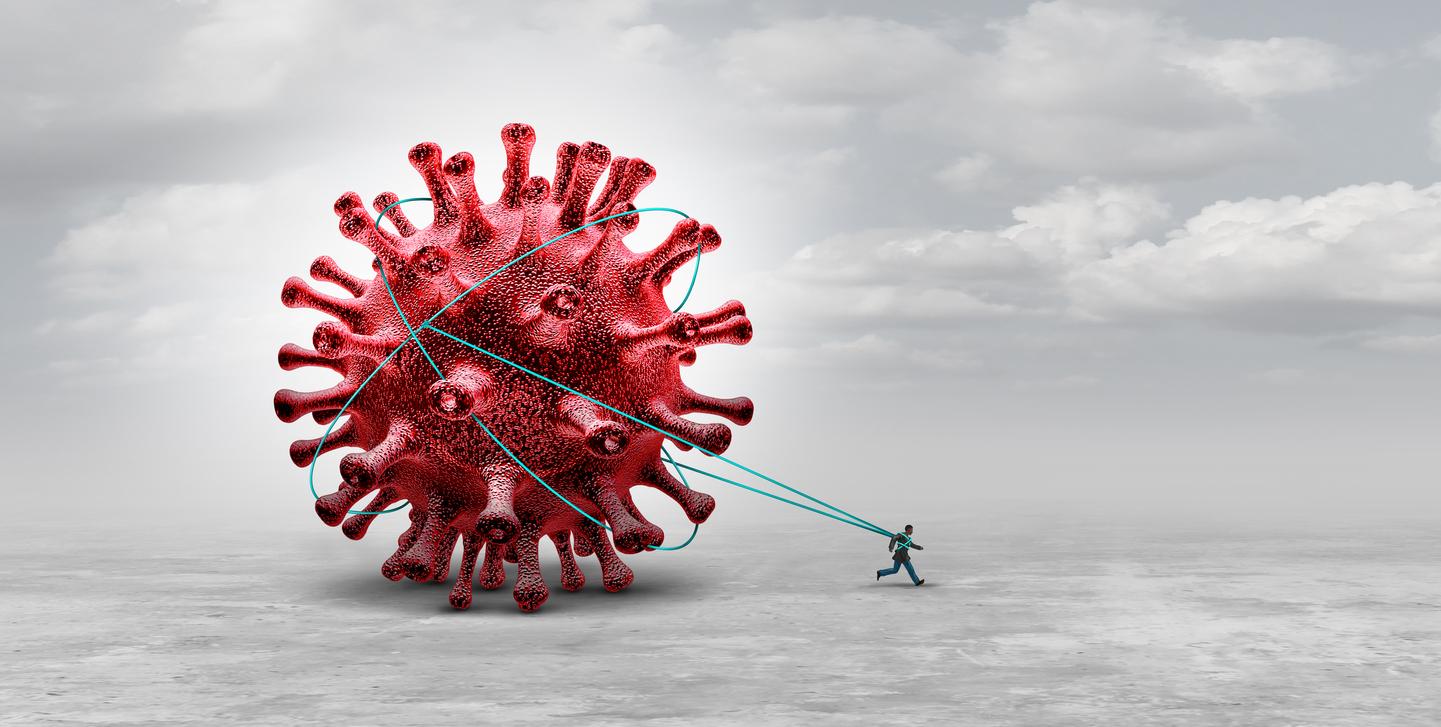With the measures put in place to try to stop the spread of Covid-19, many students are facing the postponement of their exams. This is particularly the case for candidates for the Paces competitions (first year common to health studies), the second part of which should have taken place in May. Juliette, 18, testifies.

The Paces competitions determine the passage to the second year of medicine. The places are expensive: the classification in the tests is decisive. These are separated into two parts: they are held first at the end of the first semester, then at the end of the second. Thus, if the last half of the competition should have taken place in May, it was reorganized differently according to the establishments, at the end of the announcement of the Ministry of Higher Education, on March 24. Juliette, a first-year medical student at Paris Diderot University, testifies.
We know we have to work, but we can’t take it anymore
“At the beginning of the year, the rhythm was quite continuous: we were told that we had to work more than 10 hours a day. Clearly, no one was doing it. Then, it came on its own. During the first semester, I was working 8 to 9 hours a day, before there was a moment when we all cracked up a bit: we only worked 4 to 5 hours a day because we were exhausted. That’s the first year of medicine: we know we have to work, but we can’t take it anymore.
Before the crisis, my time was divided between prep, where I didn’t go often, only 4 hours a week, and college, where I only went for mock competitions. We were told that the second semester was going to be long, that we would have time to work before the second part of the competition. Unfortunately, I didn’t think it would last that long: when we were told that the Paces was going to be postponed, we were disgusted because we were supposed to have four months of vacation, which should have been the best of our lives.
We still don’t know exactly what will happen.
With the confinement, what was the hardest thing was not having the information: they changed the date of the tests, their duration and their place many times. The second part of the Paces should have been held on May 5. At the start of the crisis, we were told that the date would not move, then, in reality, it might be moved to July. Then we were told about the last week of June, to finally fix it on June 17th. At the same time, it was stressful to see that several universities, such as Toulouse, had replaced the three-day tests with a single 1h30.
With the students I know, we were very afraid that this was the case for us too. For the moment, in Diderot, we still do not know what will happen exactly. The college sent us a message on May 19 to tell us that the contest will take place over three days instead of two, that’s all. Normally, we should pass it at Le Bourget, in Seine-Saint-Denis, but we pass the tests with Descartes. However, for the students of this faculty, the place has been changed, so maybe it will be the case for us too.
We never see the end
We remain in uncertainty: we are not immune to a new change. It’s complicated, especially for hotels that you have to book to sleep on site in order to be on time, early in the morning. At the same time, I feel a drop in motivation. When we were told that the competition was going to be postponed, we all stopped working a bit because we were disgusted. There are plenty of afternoons when I give up. I tell myself that I have time, when in reality, when we stop even for a day, we fall behind.
Even if the rhythm seems cooler, it is all the more painful: we never see the end of it. Then, I’m afraid that the date is still off, that with a second wave we pass the competition in August. Now, we are beginning to feel the stress of the approaching competition, we resume a normal rhythm: 9 hours of work per day, weekends included. For example, in May, we had classes even on public holidays.
I’m afraid it could penalize me
I prepared for a year. I’m quite disgusted that the tests are staggered because I was very well ranked in the first semester exams: I arrived 54 out of 1,500. The Paces consists of learning as many things as possible so as not to be late compared to the others . However, with the additional delay due to the postponement of the tests, everyone will have time to fill in their gaps and no one will be late. This means that a very small error will cause well-ranked students to lose around thirty places.
This adds a lot of stress, especially since in prep, teachers reassure students by telling them that the ranking is irrelevant and that those who did not have a good position during the first semester can go up to the second. I’ve even heard that the top ranked people go down the most, in the end. At the same time, the video courses are much worse than the traditional ones: it is more difficult to ask questions. I’m afraid it could penalize me.
It’s a lot of stress, all the time
Despite everything, I try to put things into perspective: I have around 14 on average, while those who are not classified are around 12. I would really have to miss D-Day to not pass, but that’s a lot stress all the time. The fact that we are in uncertainty for a lot of parameters adds to it. We work, without even really knowing where we are for the rankings, since we were told in the week of May 18 that only the first 337 will be taken.
We are disgusted, because this means that Paris has lost places when we were told earlier that they had to increase them. At the same time, lots of petitions are spinning in all directions to change the dates of the tests. Some say it’s not fair to those who can’t work from home: they would like the competition to be postponed. In short, nothing is settled, but the stress and the pressure continue to increase”.
.
















